 W
WDiplomacy is the practice of influencing the decisions and conduct of foreign governments or intergovernmental organisations through dialogue, negotiation, and other nonviolent means. Diplomacy usually refers to international relations carried out through the intercession of professional diplomats with regard to a variety of issues and topics.
 W
WAn alliance is a relationship among people, groups, or states that have joined together for mutual benefit or to achieve some common purpose, whether or not explicit agreement has been worked out among them. Members of an alliance are called allies. Alliances form in many settings, including political alliances, military alliances, and business alliances. When the term is used in the context of war or armed struggle, such associations may also be called allied powers, especially when discussing World War I or World War II.
 W
WAn apostolic nunciature is a top-level diplomatic mission of the Holy See, equivalent to an embassy. However, it does not issue visas, nor does it have consulates.
 W
WThe Asia Council is a pan-Asian organization constituted in 2016 to serve as a continent wide forum to address Asia's key challenges and foster cooperation among countries of Asia. The council has its headquarters in Tokyo and regional directorates in Doha, Chengdu and Bangkok.
 W
WThe Bellevue Palace is a five-star luxury hotel located in the Old City of Bern, Switzerland. Owned by the Swiss Confederation, it is the state's guesthouse for visiting heads of state and government, and is host to dozens of members of parliament during the weeks the assembly is in session.
 W
WThe Rómulo Betancourt Doctrine is a doctrine of foreign policy promoted by the president of Venezuela Rómulo Betancourt that establishes the rupture of diplomatic relations with governments without democratic and dictatorial origins.
 W
WCaviar diplomacy is a lobbying strategy of Azerbaijan, consisting of costly invitations of foreign politicians and employees of international organizations to Azerbaijan at the expense of the host country. Caviar Diplomacy also includes expensive gifts presented as "a tribute to the Eastern tradition."
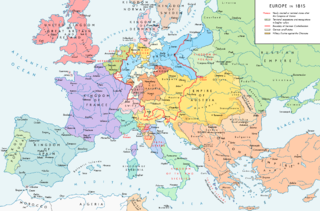 W
WThe Concert of Europe refers to a general consensus among the Great Powers of 19th Century Europe to maintain the European balance of power and the integrity of territorial boundaries. Never a consensus, and subject to disputes and jockeying for position and influence, the Concert represents an extended period of relative peace and stability in Europe following the Wars of the French Revolution and Napoleonic Wars which had consumed the continent since the 1790s. It is typically divided into two phases with different dynamics, the first from 1815 to the early 1850s or 1860s, and the second from the early 1880s to 1914.
 W
WA diplomatic mission or foreign mission is a group of people from one state or an organization present in another state to represent the sending state or organization officially in the receiving state. In practice, the phrase diplomatic mission usually denotes the resident mission, namely the embassy, which is the main office of a country's diplomatic representatives to another country; this is usually, but not necessarily, in the receiving state's capital city. Consulates, on the other hand, are smaller diplomatic missions which are normally located in major cities of the receiving state. As well as being a diplomatic mission to the country in which it is situated, it may also be a non-resident permanent mission to one or more other countries. There are thus resident and non-resident embassies.
 W
WThe Continental Blockade, or Continental System, was the foreign policy of Napoleon Bonaparte against the United Kingdom during the Napoleonic Wars. As a response to the naval blockade of the French coasts enacted by the British government on 16 May 1806, Napoleon issued the Berlin Decree on 21 November 1806, which brought into effect a large-scale embargo against British trade. The embargo was applied intermittently, ending on 11 April 1814 after Napoleon's first abdication. The blockade caused little economic damage to the UK, although British exports to the continent dropped from 55% to 25% between 1802 and 1806. As Napoleon realized that extensive trade was going through Spain and Russia, he invaded those two countries. His forces were tied down in Spain—in which the Spanish War of Independence was occurring simultaneously—and suffered severely in, and ultimately retreated from Russia in 1812.
 W
WDe-escalation is a behavior that is intended to prevent escalation of conflicts. It may also refer to approaches in conflict resolution. People may become committed to behaviors that tend to escalate conflict, so specific measures must be taken to avoid such escalation.
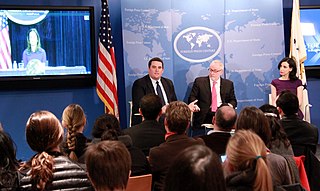 W
WDigital diplomacy, also referred to as Digiplomacy and eDiplomacy, has been defined as the use of the Internet and new information communication technologies to help achieve diplomatic objectives. However, other definitions have also been proposed. The definition focuses on the interplay between internet and diplomacy, ranging from Internet driven-changes in the environment in which diplomacy is conducted to the emergence of new topics on diplomatic agendas such as cybersecurity, privacy and more, along with the use of internet tools to practice diplomacy.
 W
WA diplomatic bag, also known as a diplomatic pouch, is a container with certain legal protections used for carrying official correspondence or other items between a diplomatic mission and its home government or other diplomatic, consular, or otherwise official entity. The physical concept of a "diplomatic bag" is flexible and therefore can take many forms.
 W
WThe diplomatic corps is the collective body of foreign diplomats accredited to a particular country or body.
 W
WA diplomatic gift is a gift given by a diplomat, politician or leader when visiting a foreign country. Usually the gift is reciprocated by the host. The use of diplomatic gifts dates back to the ancient world and givers have competed to outdo each other in the lavishness of their gifts. Examples include silks given to the West by the Byzantines in the early Middle Ages, the luxury book, and panda diplomacy by the Chinese in the twentieth century.
 W
WMost countries issue diplomatic license plates to accredited diplomats. Per the Vienna Convention on Consular Relations, these are special vehicle registration plates which typically have distinctive features to allow diplomatic vehicles to be distinguished from other vehicles by police and other bodies, allowing them to give diplomatic vehicles special treatment and warning them that the operators and passengers of those vehicles may have diplomatic immunity. Critics of these plates say that operators of these vehicles abuse these privileges, often parking in illegal spaces and breaking vehicular law without fear of repercussion.
 W
WEurocities is a network of large cities in Europe, established in 1986 by the mayors of six large cities: Barcelona, Birmingham, Frankfurt, Lyon, Milan and Rotterdam. Today, Eurocities members includes over 200 of Europe's major cities from 39 countries, which between them represent 130 million people.
 W
WFull spectrum diplomacy is a combination of traditional, government-to-government diplomacy with the many components of public diplomacy as well as the integration of these two functions with other instruments of statecraft. The term was coined by Dr. John Lenczowski, the founder and president of the Institute of World Politics in Washington, D.C. in his book Full Spectrum Diplomacy and Grand Strategy: Reforming the Structure and Culture of U.S. Foreign Policy which was released in May, 2011.
 W
WGlobcal International is a membership cooperative, non-profit international nongovernmental organization, and research development commission of independently recognized goodwill ambassadors from embassies, states, cities, and international organizations. Globcal's founding members are professionals with social media advocacy skills and backgrounds in foreign relations, diplomacy, sociology, psychology, philosophy, law, conservation and other academic disciplines.
 W
WThe Golden Cavalry of St George was the colloquial name of subsidies paid out by the British government to other states in Europe in the 18th and the 19th centuries, particularly during the Napoleonic Wars. The name is a euphemism and derives from the British sovereign gold coins often used in those payments, which bore an image of Saint George, the patron saint of England, on horseback slaying the dragon.
 W
WGoodwill Ambassador is a post-nominal honorific title, a professional occupation and/or authoritative designation that is assigned to a person who advocates for a specific cause or global issue on the basis of their notability such as a public figure, advocate or an authoritative expert. Sometimes the role of a goodwill ambassador is presented as "Ambassador" or "Goodwill Ambassador" preceding the first and last name, the titled name of the individual is always presented with an organizational, regional or national affiliation. Goodwill ambassadors generally deliver goodwill by promoting ideals or positions from one entity to another, or to a population to establish a benevolent relationship. A goodwill ambassador may be an individual from one country who resides in or travels to another country, on a diplomatic mission at a peer to peer level; that is: country to country, state to state, city to city, or as an intermediate emissary representative of the people of a specific organization or cultural group such as an indigenous tribe, marginalized people or enclave population.
 W
WThe Great Eastern Crisis of 1875–78 began in the Ottoman Empire's territories on the Balkan peninsula in 1875, with the outbreak of several uprisings and wars that resulted in the intervention of international powers, and was ended with the Treaty of Berlin in July 1878.
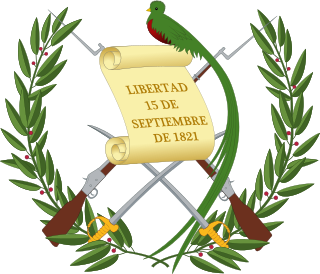 W
WThe Ministry of Foreign Affairs of Guatemala is the executive office in charge of conducting the international relations of the country. This ministry can give the Guatemalan nationality, enforces the immigration laws of the country, preserves the national limits and boundaries, negotiates international treaties and agreements with other countries and preserves the copies of the ones signed by Guatemala. It is appointed by law to preserve the national interests overseas and to be part of the National Security System.
 W
WHard power is the use of military and economic means to influence the behavior or interests of other political bodies. This form of political power is often aggressive (coercion), and is most immediately effective when imposed by one political body upon another of lesser military and/or economic power. Hard power contrasts with soft power, which comes from diplomacy, culture and history.
 W
WHer Majesty's Diplomatic Service (HMDS) is the diplomatic service of the United Kingdom of Great Britain and Northern Ireland, dealing with foreign affairs, as opposed to the Home Civil Service, which deals with domestic affairs. It employs around 14,000 people, roughly one-third of whom are crown servants working directly for the Foreign, Commonwealth and Development Office, either in London or abroad. The remaining two thirds of staff are employed locally by one of nearly 270 British diplomatic missions abroad. The Permanent Under-Secretary of State for Foreign Affairs is also the Head of the Diplomatic Service.
 W
WIndia Is is a series of photography and video challenges organized by the Public Diplomacy Division (PDD) of the Ministry of External Affairs (MEA), Government of India. Both of the contests invite photo and video entries, respectively, on given themes.
 W
WThe ISPD Protocol & Diplomacy is part of the ISPD Group and an academic institution solely dedicated to research, education, training and consultancy in International Protocol, Soft Diplomacy, Business Protocol, Etiquette, Official Events, Cross-Cultural Intelligence, Strategic Communication and Corporate Diplomacy. As the word “School” is not summarising properly all ISPD related activities the wording was changed and the group does not use the word “School” anymore.
 W
WThe Japanese missions to Imperial China were diplomatic embassies which were intermittently sent to the Chinese court. Any distinction amongst diplomatic envoys sent from the Imperial Japanese court or from any of the Japanese shogunates was lost or rendered moot when the ambassador was received in the Chinese capital.
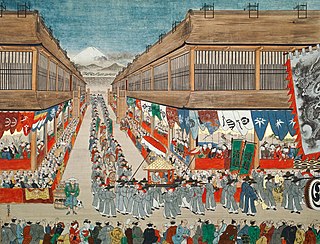 W
WThe Joseon Tongsinsa were goodwill missions sent intermittently, at the request of the resident Japanese authority, by Joseon Dynasty Korea to Japan. The Korean noun identifies a specific type of diplomatic delegation and its chief envoys. From the Joseon diplomatic perspective, the formal description of a mission as a tongsinsa signified that relations were largely "normalized," as opposed to missions that were not called tongsinsa.
 W
WIn April 2021, more than three hours of audiotape was leaked from a seven-hour interview between economist Saeed Leylaz and Iranian foreign minister Mohammad Javad Zarif. The taped conversation was connected to an oral history project, "In the Islamic Republic the military field rules," that documents the work of Iran's current administration. The tape was obtained by the London-based news channel Iran International and publicized by the The New York Times. Zarif did not dispute the authenticity of the leaked tape, but questioned the motive. Iran International noted that Zarif's claim was "not very credible."
 W
WA legation was a diplomatic representative office of lower rank than an embassy. Where an embassy was headed by an ambassador, a legation was headed by a minister. Ambassadors outranked ministers and had precedence at official events. Legations were originally the most common form of diplomatic mission, but they fell out of favor after World War II and were upgraded to embassies.
 W
WMaṇḍala is a Sanskrit word meaning 'circle'. The mandala is a model for describing the patterns of diffuse political power distributed among Mueang or Kedatuan (principalities) in early Southeast Asian history, when local power was more important than the central leadership. The concept of the mandala balances modern tendencies to look for unified political power, eg. the power of large kingdoms and nation states of later history — an inadvertent byproduct of 15th century advances in map-making technologies. In the words of O. W. Wolters who further explored the idea in 1982:The map of earlier Southeast Asia which evolved from the prehistoric networks of small settlements and reveals itself in historical records was a patchwork of often overlapping mandalas.
 W
WFor the Cold War military alliance, see Baghdad Pact.
 W
WA diplomatic mission or foreign mission is a group of people from one state or an organization present in another state to represent the sending state or organization officially in the receiving state. In practice, the phrase diplomatic mission usually denotes the resident mission, namely the embassy, which is the main office of a country's diplomatic representatives to another country; this is usually, but not necessarily, in the receiving state's capital city. Consulates, on the other hand, are smaller diplomatic missions which are normally located in major cities of the receiving state. As well as being a diplomatic mission to the country in which it is situated, it may also be a non-resident permanent mission to one or more other countries. There are thus resident and non-resident embassies.
 W
WA motorcade, or autocade, is a procession of vehicles.
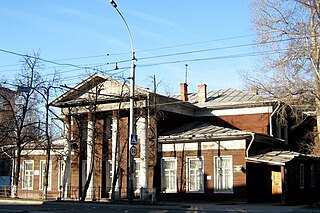 W
WThe Museum of Diplomatic Corps is a private historical museum located in Russian city Vologda. It is situated in a wooden manor that belonged to a noble Pavel Puzan-Puzyrevsky where, in 1918, the American Embassy was quartered. The exposition of the museum is devoted to little known events which took place in Vologda in February–July 1918, and is connected with a stay of 11 foreign embassies and diplomatic missions headed by the American Ambassador David Rowland Francis.
 W
WNational Security Decision Directive 77, was a U.S. National Security Directive signed on January 14, 1983 by President Ronald Reagan. The directive established a Special Planning Group (SPG) under the National Security Council (NSC) whose purpose was to strengthen, organize, plan, and coordinate public diplomacy of the United States relative to national security. This NSDD positioned the White House and the National Security Staff at the helm of public diplomacy coordination across government agencies. NSDD-77 lay the groundwork for the Reagan administration's aggressive public diplomacy strategy and included guidance for inter-agency working groups to execute wide ranging tactics for information dissemination both domestically and internationally.
 W
WThe Nordic Council is the official body for formal inter-parliamentary Nordic cooperation among the Nordic countries. Formed in 1952, it has 87 representatives from Denmark, Finland, Iceland, Norway, and Sweden as well as from the autonomous areas of the Faroe Islands, Greenland, and the Åland Islands. The representatives are members of parliament in their respective countries or areas and are elected by those parliaments. The Council holds ordinary sessions each year in October/November and usually one extra session per year with a specific theme. The council's official languages are Danish, Finnish, Icelandic, Norwegian, and Swedish, though it uses only the mutually intelligible Scandinavian languages—Danish, Norwegian, and Swedish—as its working languages. These three comprise the first language of around 80% of the region's population and are learned as a second or foreign language by the remaining 20%.
 W
WThe Pontifical Ecclesiastical Academy is one of the Roman Colleges of the Catholic Church. The academy is dedicated to training priests to serve in the diplomatic corps and the Secretariat of State of the Holy See.
 W
WPrague Student Summit (PSS) is an educational project for high school and university students, which has more than 20 years of tradition in the Czech Republic. Through simulation of negotiations of international organizations, the participants have the opportunity to widen their knowledge in fields like international affairs, human rights, economy, cultural heritage and environment. At the same time, they can develop their rhetorical, presentation and argumentation skills. The Prague Student Summit gives the participants a unique opportunity to get a glimpse of the world of diplomacy and international relations. It is a project that endorses the idea of informal education, puts emphasis on the development of individual and this way complements the education in Czech schools.
 W
WA prize court is a court authorized to consider whether prizes have been lawfully captured, typically whether a ship has been lawfully captured or seized in time of war or under the terms of the seizing ship's letters of marque and reprisal. A prize court may order the sale or destruction of the seized ship, and the distribution of any proceeds to the captain and crew of the seizing ship. A prize court may also order the return of a seized ship to its owners if the seizure was unlawful, such as if seized from a country which had proclaimed its neutrality.
 W
WA protecting power is a country that represents another sovereign state in a country where it lacks its own diplomatic representation. It is common for protecting powers to be appointed when two countries break off diplomatic relations with each other. The protecting power is responsible for looking after the protected power's diplomatic property and citizens in the hosting state. If diplomatic relations were broken by the outbreak of war, the protecting power will also inquire into the welfare of prisoners of war and look after the interests of civilians in enemy-occupied territory.
 W
WProxeny or proxenia in ancient Greece was an arrangement whereby a citizen hosted foreign ambassadors at his own expense, in return for honorary titles from the state. The citizen was called proxenos or proxeinos (πρόξεινος). The proxeny decrees, which amount to letters patent and resolutions of appreciation were issued by one state to a citizen of another for service as proxenos, a kind of honorary consul looking after the interests of the other state's citizens. A cliché phrase is euergetes (benefactor) and proxenos.
 W
WIn diplomacy, reputational damage is harm to a country's diplomatic relations based on adverse events. Lack of human rights and perceived lack of concern for allied or partner countries may cause reputational damage. Scorecard diplomacy depends on countries wanting to minimize their reputational damage from poor compliance with international norms.
 W
WState and official visits to the United Kingdom are formal visits by the head of state of one country to the United Kingdom, during which the British Sovereign acts as official host of the visitor. It is a royal event that involves all the assets in the Civil Service, the Royal Household and the Household Division. It also involves other members of the Royal family and is centred in London, the national capital. Invitations for state visits are sent by the Royal Household with supervision by the Foreign and Commonwealth Office.
 W
WA state banquet is an official banquet hosted by the head of state in his or her official residence for another head of state, or sometimes head of government, and other guests. Usually as part of a state visit or diplomatic conference, it is held to celebrate diplomatic ties between the host and guest countries. Depending on time of the day, it may be referred to as a state dinner or state lunch. The size varies, but the numbers of diners may run into the hundreds.
 W
WState and official visits to the United States are formal visits by the head of state or chief of government from one country to the United States, during which the president of the United States acts as official host of the visitor. State visits are considered to be the highest expression of friendly bilateral relations between the United States and a foreign state and are, in general, characterized by an emphasis on official public ceremonies.
 W
WIn political science, triangular diplomacy is a foreign policy of the United States, developed during the Vietnam War (1955–1975) by Henry Kissinger, as a means to manage relations between contesting Communist powers, the Soviet Union and China. Connecting heavily with the correlating policy of linkage, the policy was intended to exploit the ongoing rivalry between the two Communist powers, as a means to strengthen American hegemony and diplomatic interest.
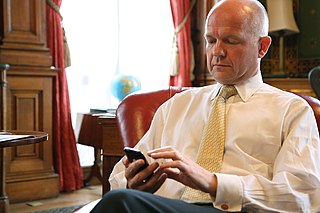 W
WTwitter diplomacy, also "Twiplomacy" or "hashtag diplomacy", is the use of social media website, Twitter, by heads of state, leaders of intergovernmental organizations (IGOs), and their diplomats to conduct diplomatic outreach and public diplomacy.
 W
WDiplomatic uniforms are ornate uniforms worn by diplomats—ambassadorial and consular officers—at public occasions. Introduced by European states around 1800 and patterned on court dress, they were abandoned by most countries in the twentieth century, but diplomats from some countries retain them for rare, formal occasions.
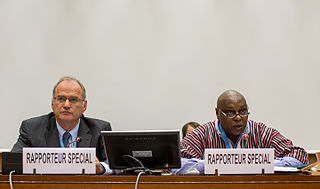 W
WSpecial rapporteur, independent expert, and working group member are titles given to individuals working on behalf of the United Nations (UN) within the scope of "special procedure" mechanisms who have a specific country or thematic mandate from the United Nations Human Rights Council. The term "rapporteur" is a French-derived word for an investigator who reports to a deliberative body.
 W
WCyber-diplomacy is the evolution of public diplomacy to include and use the new platforms of communication in the 21st century. As explained by Jan Melissen in The New Public Diplomacy: Soft Power in International Relations, cyber-diplomacy “links the impact of innovations in communication and information technology to diplomacy.” Cyber-diplomacy is also known as or is part of public diplomacy 2.0, EDiplomacy, and virtual diplomacy. Cyber-diplomacy has as its underpinnings that, “it recognizes that new communication technologies offer new opportunities to interact with a wider public by adopting a network approach and making the most of an increasingly multicentric global, interdependent system.”
 W
WA Foreign Service Officer (FSO) is a commissioned member of the United States Foreign Service. Foreign Service Officers formulate and implement the foreign policy of the United States. FSOs spend most of their careers overseas as members of U.S. embassies, consulates, and other diplomatic missions, though some receive assignments to serve at combatant commands, Congress, and educational institutions such as the various U.S. War Colleges.